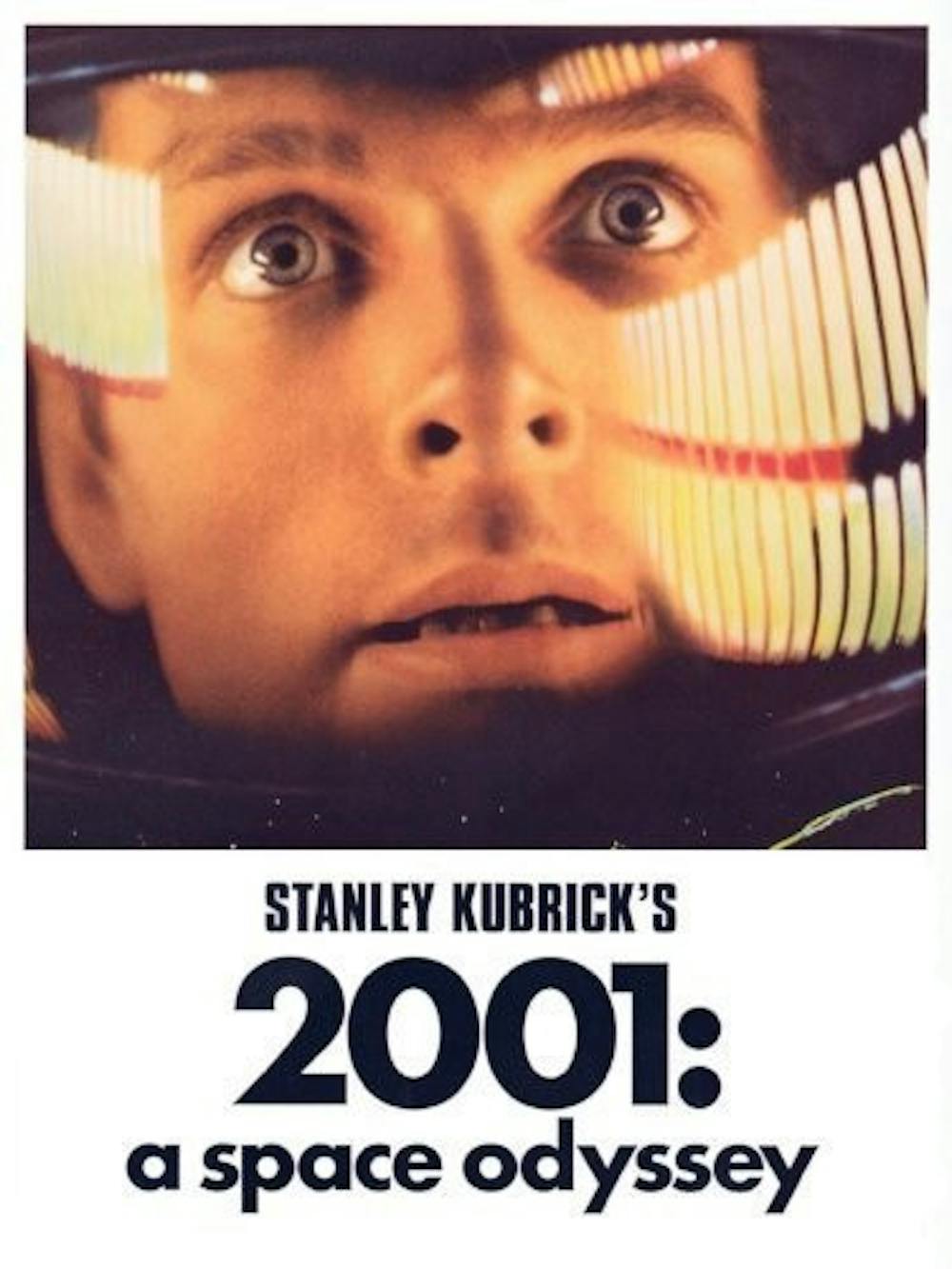When I heard that "2001: A Space Odyssey" was being re-released in the U.K. a few months ago, I will admit that I was completely jealous. "2001: A Space Odyssey" is the best movie of all time, and should be re-released in the U.S. as well. Before I begin my explanation as to why "2001: A Space Odyssey" is the best movie that has ever been made, here, for comparison, is a list of my top-10 favorite movies:
- "2001: A Space Odyssey"
- "The Exorcist" (1973)
- "Before Sunrise"
- "The Good, The Bad and The Ugly"
- "The Big Lebowski"
- "Barry Lyndon"
- "The Man Who Shot Liberty Valance"
- "Pulp Fiction"
- "Goodfellas"
- "The Searchers"
While all of those movies are great, only one movie claims the top spot because of its breathless scope, spectacular visuals, grand thematic ideas, unconventional narrative structure and beautiful soundtrack. Because of all these things, along with Kubrick’s masterful direction, "2001: A Space Odyssey" is the greatest movie that has ever been captured on film, and it is also the best film that will ever be made.
When it first came out the film was immensely polarizing. People hated it (Stanley Kauffmann) and others loved it (Roger Ebert). It is reported that at the movie’s premiere, there were 241 walkouts, including Rock Hudson, who asked: “Will someone tell me what the hell this is about?”
Some original criticisms included the absence of character development resulting in little suspense. Too many, still even today, view it as an easy way to fall asleep in Film Study class. Why is a movie with no real protagonist or antagonist and extremely slow pacing still remembered today, then?
It’s because of the grand ideas behind the picture. Every frame of the movie is almost like seeing a gorgeous painting, a work of art. The extremely slow pacing is not a curse, it’s a blessing! Because the movie moves slowly along at its own pace, your visual senses are saturated with some of the greatest shots in movie history. Kubrick wanted us to look at each and every shot, contemplate it and have it consume our imaginations. According to Roger Ebert, alone among science-fiction movies, "2001: A Space Odyssey" is not concerned with thrilling us, but with inspiring our awe. Each scene effectively does that. The iconic smash cut from bone to satellite. The black monolith sitting there, waiting for the astronauts. Dave floating through HAL’s memory. The travel through space and time. The Dave’s Victorian style prison. And of course, Dave’s transformation into what represents the future of mankind, drifting towards Earth.
Next time you watch the movie, notice Kubrick’s technical achievement of making those 1968 special effects hold up remarkably well today, without CGI to help him. Kubrick spent more than half of his budget on the special effects, with the results influencing future classics like "Star Wars" or "Close Encounters of the Third Kind." "2001: A Space Odyssey" upgraded an entire genre of film, Science-Fiction, from B movie schlock to an art form that inspired George Lucas, Steven Spielberg and Alfonso Cauron. "2001: A Space Odyssey" is one of the few 1960s movies to survive the test of time; a movie that defined the entire decade, coming out at peak of the space race.
The biggest frustration for modern audiences is that they want the movie explained. With no definite answers to what happens in the movie, many people (my entire family included) dismisses "2001: A Space Odyssey" as intellectual garbage.
But Kubrick’s refusal to spell things out and hold the audience by the hand is the genius of "2001: A Space Odyssey." Different viewers have the freedom to interpret the movie completely different ways, always unsure of what happened to Dave as he transformed into a star child. There is no right or wrong answer. According to Film.com, Stanley Kubrick and Arthur C. Clarke give us a metaphorical, symbolic representation of man finding new, advanced knowledge beyond what he already has. How we obtain or find this new knowledge is left for the viewer and their interpretation of the movie.
A quote from Stanley Kubrick in an interview sums everything up:
“I intended the film to be an intensely subjective experience that reaches the viewer at an inner level of consciousness, just as music does; to 'explain' a Beethoven symphony would be to emasculate it by erecting an artificial barrier between conception and appreciation. You’re free to speculate as you wish about the philosophical and allegorical meaning of the film — and such speculation is one indication that it has succeeded in gripping the audience at a deep level — but I don’t want to spell out a verbal road map for '2001' that every viewer will feel obligated to pursue or else fear he’s missed the point.”
Now I think it is time that "2001: A Space Odyssey" be re-released for theaters again. I mean, the U.K. got one a few months ago. That’s just not fair.
Reach the columnist at ndsmit12@asu.edu or follow @noahsmith1996 on Twitter.
Like The State Press on Facebook and follow @statepress on Twitter.
Editor’s note: The opinions presented in this column are the author’s and do not imply any endorsement from The State Press or its editors.
Want to join the conversation? Send an email to opiniondesk.statepress@gmail.com. Keep letters under 300 words and be sure to include your university affiliation. Anonymity will not be granted.




